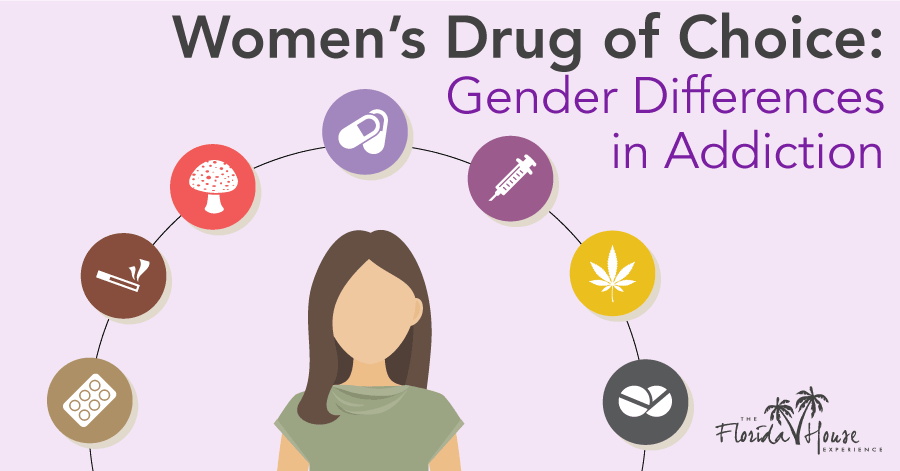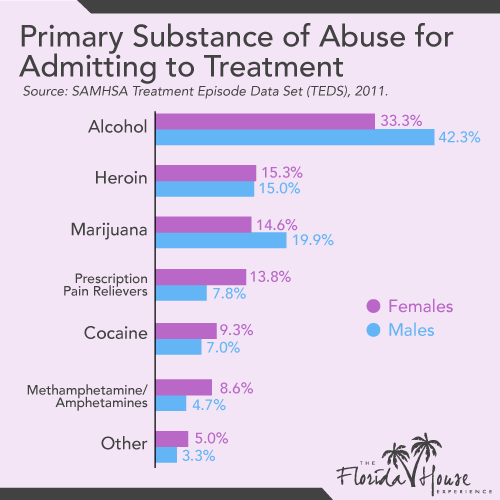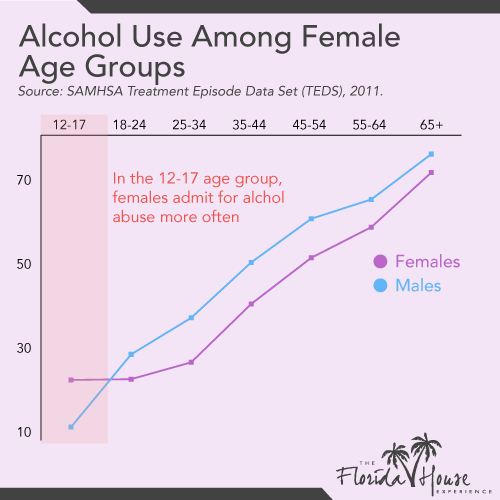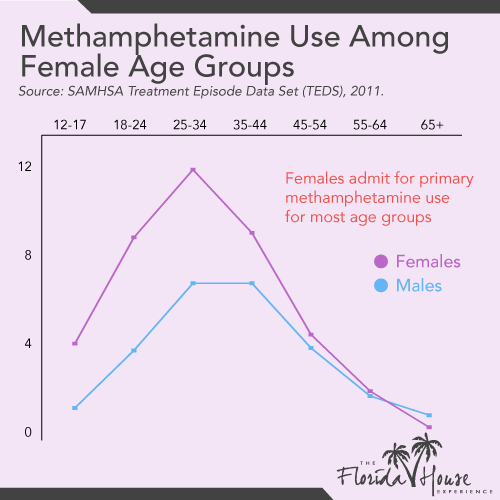
Women’s drug of choice – do women prefer one drug type over the other? The research done has shown that women and their drug use patterns differ from men’s. Understanding gender differences in substance abuse, including differences in their drug of choice, can be a very important step in ensuring your own treatment plan.
Start Treatment Now
Treatment can begin quickly and discretely, get started now
How Do Sex and Gender Differences Impact Substance Use?

In all phases of drug abuse, there are differences in the types of drugs men and women select. It is important to note, though, that all drugs can be used by anyone. Never assume someone is not using a drug just because it is less common. Take a closer look at some key gender differences in substance abuse as pointed out in the study previously referenced.
Are Women or Men More Likely to Use Alcohol?
Research indicates men are more likely to abuse alcohol than women. This includes binge drinking. There is one time frame in which women actually drink more than men. The study found that in young adults and teens, aged 12 to 20, women are more likely to misuse alcohol than men.
Alcohol impacts women and men differently as well. For example, men metabolize alcohol more slowly, due in part to their larger body mass and muscle makeup. Women, on the other hand, will see a higher blood ethanol concentration with fewer drinks – and at a faster rate. This means less alcohol can create a buzz for women.
What is the Gender Difference in Opioid Use?

Women also tend to be more likely to take prescription drugs like this to help ease pain without a prescription. Self-treatment of pain is not uncommon in women. This occurs even when men and women report the same level or type of pain. Studies also indicate women are at a higher risk for using prescription opioids to self-treat conditions such as anxiety.
Is Heroin a More Likely Drug of Choice for Men or Women?
Heroin is a dangerous drug that causes a wide range of health complications in both men and women. It is highly addictive and one of the leading causes of overdoses in many areas. When considering how women use heroin compared to men, there are a few key points to think about.
First, women who use this drug tend to use less of it. They also tend to use it for a shorter period of time. When asked why they started using it, the highest percentage of women report doing so because their sexual partner encouraged it or because of other social pressures to do so.
Women who use heroin as their drug of choice tend to be younger than men who use it. They are also less likely to inject heroin, favoring other methods of use. They are also at a higher risk of overdosing in the first years of use, which could be because of the high number of women who mix heroin and prescription drugs.
Are Stimulants the Drug of Choice for Men or Women?

Some science shows that the estrogen hormone in women allows women to be more sensitive to the reinforcing effects of these drugs. As a result, they continue to use and make stimulants their drug of choice, because they want to feel that same high again. Also, important to note is that women who use stimulants like cocaine tend to start sooner than men, and they use larger amounts of it than men.
Another common drug women use is methamphetamine. This drug, also a stimulant, is often sought after because of its potential to provide more energy. Women, who may be exhausted from work and life balance, may be more likely to use this drug in order to get the energy they need to keep going.
Another perceived benefit of this drug is the weight loss that tends to come with it. Some women begin using meth as a direct result of the potential to lose weight – which comes from the increased activity and sped up metabolism it creates.
Why Do Women Use Drugs?
Understanding why women choose to use drugs can be difficult to grasp from someone looking in from the outside. Yet, self-administering illicit and prescription drugs commonly occurs. Women do start with smaller doses overall. And, they tend to be more focused on the benefits any particular drug can create rather than the sense of getting high.
For example, improved energy, better focus, and weight loss are driving factors behind use, whereas men are more likely to use illegal drugs for the sense of euphoria they can create.
What Does This Mean for Treatment?
Women and their drug use may be a bit different from men’s. However, individuals with a substance abuse disorder need help. Those who have a loved one using drugs, or someone who is facing the feeling of needing to use, seeking out drug and alcohol addiction treatment is essential. Over time, the drug use impacts the chemistry of the brain, changing it significantly. And, over a period of time, women and men become unable to make decisions about use. Their body physically demands the use.
While women and men may have different preferences, a negative impact on their health, quality of life, and lifespan is likely. Seeking out drug and alcohol treatment may open the door for reducing risk and improving health. Yet, just as their drug choices differ, men and women need unique programs to support their individual needs.
At FHE Health, women-focused programs are available to help turn the page and create opportunities for recovery. Contact us today to learn more.
Begin your recovery today
Ready to start? More questions about treatment?
About Chris Foy
Chris Foy is a content manager and webmaster for FHE Health with years of experience in the addiction treatment industry...read more






